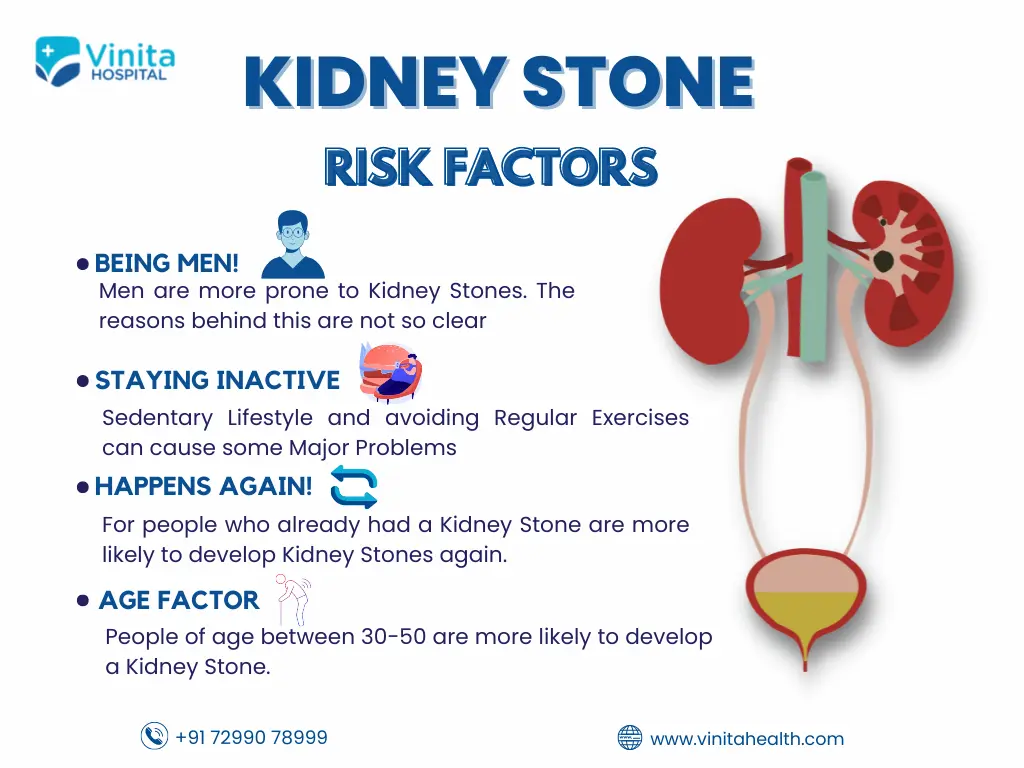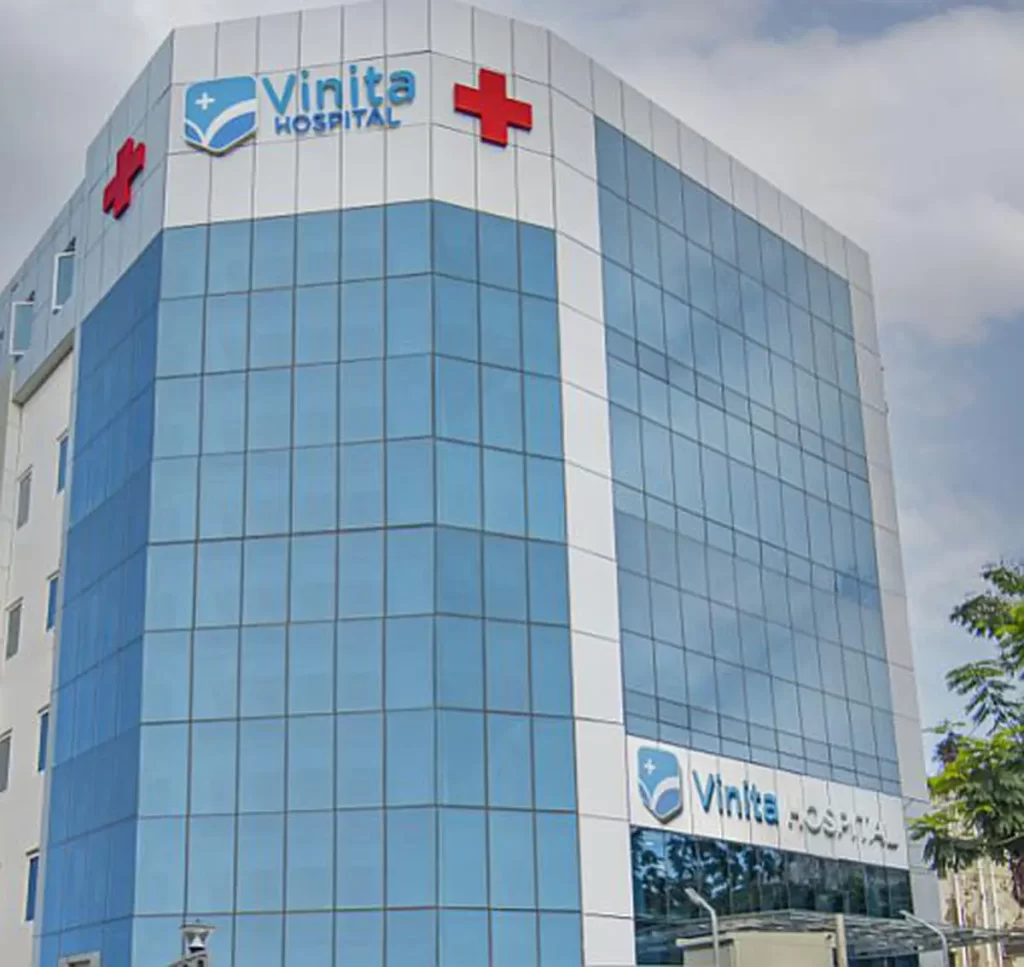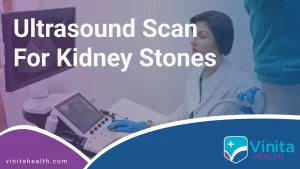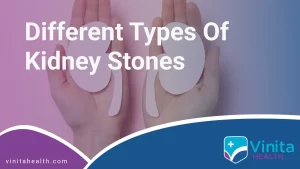Chennai, the capital city of Tamil Nadu, India, is widely known for its high level of development and modern amenities. Its healthcare system, in particular, is exceptional, with a plethora of hospitals and clinics providing excellent treatment for kidney stone removal. Vinita Hospital, in particular, has gained a reputation for being the top destination for the best kidney stone treatment in Chennai.
Nowadays, kidney problems have become increasingly prevalent, resulting in the formation of stone-like structures within the kidneys. These stones form when minerals and chemicals in urine become concentrated and amalgamate. Therefore, receiving appropriate treatment is crucial. In this article, we will discuss the symptoms and causes of kidney stones.
What is a Kidney Stone?
Kidney stones, medically known as nephrolithiasis, are solid formations composed of dissolved urinary minerals that develop within the kidney or urinary tract. These stones can vary significantly in size, from as small as a grain of sand to as large as a golf ball. They can have smooth or irregular textures and are typically yellow or brown in color.

When to See a Doctor
- Severe Pain: Persistent, intense pain that interferes with daily activities requires medical attention.
- Blood in Urine: Any pink, red, or brown discoloration in the urine should be examined by a doctor.
- Recurring Stones: If you have a history of kidney stones, you need preventive measures.
- Infection Symptoms: Fever, chills, and cloudy urine necessitate immediate medical attention.
- Large or Persistent Stones: Stones that are large or cause persistent symptoms may require advanced kidney stone treatment in Chennai.

Check out Kidney Transplant Hospital in Chennai.
Kidney Stone Treatment in Chennai at Vinita Hospital
The medical professional who will treat you for kidney stones is typically a urologist, a specialist who deals with the urinary tract, including the kidneys, bladder, and urethra. Urologists are experts in the diagnosis and treatment of kidney stones. Vinita Hospital in Chennai offers a comprehensive approach to Kidney Stone Treatment in Chennai, with a range of procedures tailored to individual patient needs.
Conservative Management
- Ideal for stones smaller than 0.5 centimetres.
- Focuses on hydration and, if needed, medical expulsive therapies.
- Aims to alleviate symptoms like pain and fever.
Extra Corporeal Shock Wave Lithotripsy (ESWL)
- Non-invasive treatment using high-energy shockwaves.
- Breaks down stones into small fragments for natural expulsion.
Shockwave Lithotripsy (SWL)
- Minimally invasive for stones up to 2 centimetres.
- Uses external shockwaves and imaging for stone breakdown.
Percutaneous Nephrolithotomy (PCNL)
- Minimally invasive for complex, larger stones.
- Involves a small incision and a nephroscope for stone removal.
Ureteroscopy With Laser Lithotripsy (URS)
- Recommended for resistant kidney stones in lower kidney regions.
- Uses a fiberoptic ureteroscope and laser for effective stone fragmentation.
Vinita Hospital’s diverse range of Kidney Stone Treatment in Chennai ensures that every patient receives personalized and effective care for their specific condition. In some cases, a nephrologist may also be involved in the treatment of kidney stones. A nephrologist is a medical doctor who specializes in the treatment of kidney diseases and disorders. They may work in conjunction with a urologist to develop a comprehensive treatment plan.
Types of Kidney Stones
The treatment options provided by the best hospital for kidney stone treatment in Chennai can vary depending on its types including:
- Calcium Stones: Made up of calcium oxalate, the most common type of kidney stone.
- Uric Acid Stones: These are formed when the urine is very acidic.
- Struvite Stones: Usually caused by a urinary tract infection and composed of magnesium ammonium phosphate.
- Cystine Stones: A rare type of stone caused by a genetic disorder that causes cystine to leak into the urine.
It’s important to note that some stones can be a mixture of two or more types. The type of stone can affect treatment options and the likelihood of future stone formation.
Hospital for Kidney Stone Specialists in Chennai
If you are looking for kidney stone treatment in Chennai, then you are at the right place. Here, we have listed some of the reputed hospitals where you can go and opt for the best kidney stone treatment.
Vinita Hospital
Vinita Hospital is a renowned and the best kidney hospital in Chennai where patients with kidney stones can expect the best treatment options delivered with compassion and care. Experienced doctors here provide adequate and effective stone removal treatments with a focus on achieving a 100% speedy recovery.
The hospital is well-equipped with modern equipment and state-of-the-art technology, ensuring world-class treatment for kidney stone removal. The medical professionals in this best hospital for kidney stone removal in Chennai are skilled in performing laser treatments and offer non-invasive procedures. The sophisticated treatment provided here aids the patients to get back to their normal routine within a few weeks making them lead a healthy lifestyle.
- Address: 70, Josier Street, Nungambakkam, Chennai-600034.
- Available Time: 24/7

Symptoms of Kidney Stones
Common symptoms include:
- Excruciating Pain: Typically in the low back, side, groin, or abdomen.
- Nausea and Vomiting: Often triggered by intense pain.
- Bloody Urine (Hematuria): Pink, red, or brown urine discoloration.
- Difficulty Urinating: Experiencing frequent or urgent urges to urinate.
- Penile or Testicular Pain: Discomfort radiating to these areas.
- Fever and Chills: Possible signs of an infection.
Risk Factors
- Family History: Higher risk if kidney stones run in the family.
- Dehydration: Lack of fluids can concentrate urine and lead to stone formation.
- Obesity: Can affect the body’s mineral balance.
- Certain Diets: High intake of protein, sodium, and sugar can increase risk.
Causes of Kidney Stones
Kidney stones are caused by the accumulation of certain minerals and salts in the urine that form solid masses. Let us discuss the most common reasons for kidney stones:
- Dehydration
- Diet
- Family History
- Medical Conditions
- Medications
- Obesity
Importance of Kidney Stone Hospital
The best kidney hospital in Chennai plays an important role in the diagnosis, treatment, and management of kidney stones. Some of the main reasons are:
- Specialized Care: Kidney stone hospitals specialize in the diagnosis, treatment, and management of kidney stones. The doctors and medical staff have the expertise and experience to provide patients with personalized care that is tailored to their specific needs.
- Advanced Diagnostic Tools: The best kidney hospital is equipped with advanced diagnostic tools that can help doctors identify the size, location, and composition of kidney stones. This can help doctors determine the most appropriate treatment plan for the patient.
- Minimally Invasive Treatments: Kidney stone removal hospitals offer minimally invasive treatments such as shockwave lithotripsy, ureteroscopy, and laser lithotripsy. These treatments are less invasive and have a shorter recovery time compared to traditional surgical procedures.
- Preventive Care: The renowned kidney hospital in Chennai provides preventive care to help patients reduce the risk of developing kidney stones in the future. This includes dietary advice, lifestyle changes, and medications to help prevent the formation of new stones.
- Multidisciplinary Approach: Kidney stone hospitals take a multidisciplinary approach to patient care, with urologists, nephrologists, radiologists, and other specialists working together to provide comprehensive care.
- Research and Innovation: The best kidney hospital in Chennai conducts research and innovates new treatments and techniques to improve patient outcomes and reduce the incidence of kidney stones.
Diagnosis of Kidney Stones
Diagnosing kidney stones involves imaging studies such as CT scans, X-rays, and ultrasounds to visualize stones and assess their size and location. Analysis of urine may reveal crystals or substances contributing to stone formation. Patient symptoms, including severe pain, hematuria, and urinary changes, also aid in diagnosis. A comprehensive evaluation enables healthcare professionals to determine the most appropriate treatment for kidney stones.
Conclusion
If you or your family members are prone to kidney stones, it is crucial to make regular visits to the best kidney stone removal hospital in Chennai. Seeking consultation with skilled kidney stone specialist in Chennai, like those at Vinita Hospital, is essential, as they offer advanced procedures for detecting and treating kidney stones, especially when caught early. Also, neglecting to treat kidney stones can result in severe complications, emphasizing the importance of early detection and treatment to maintain good health.
Read also Kidney Stone Surgery in Chennai.





